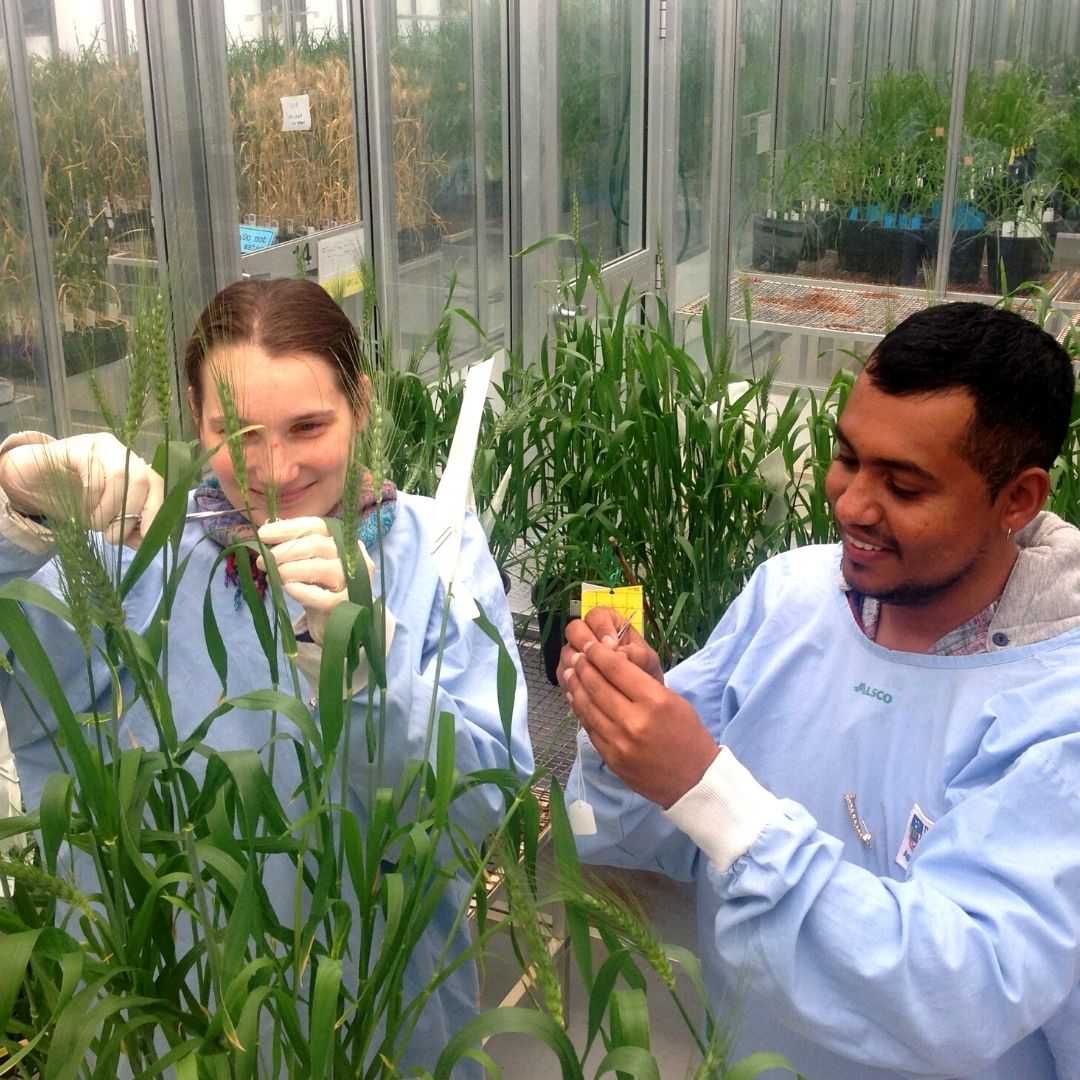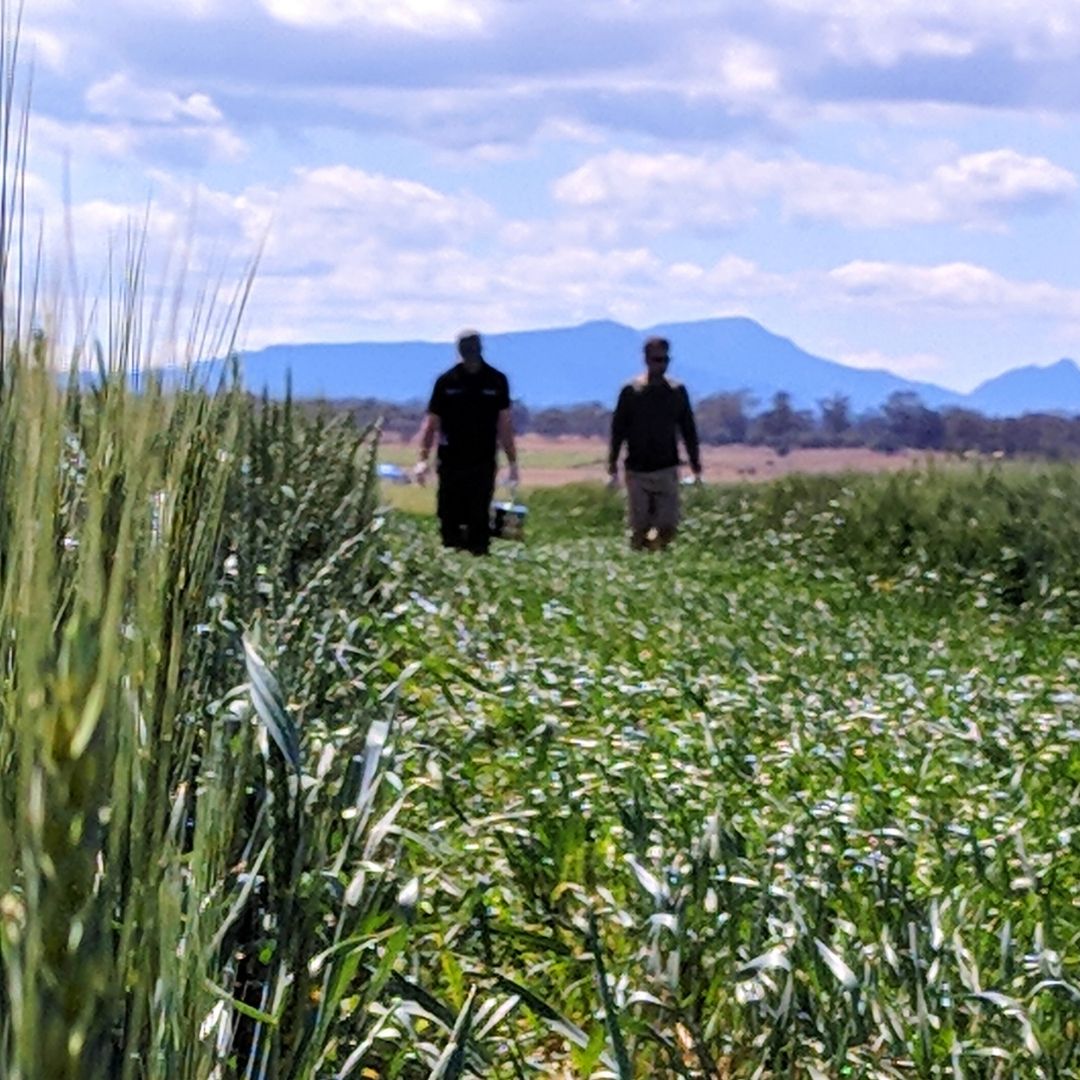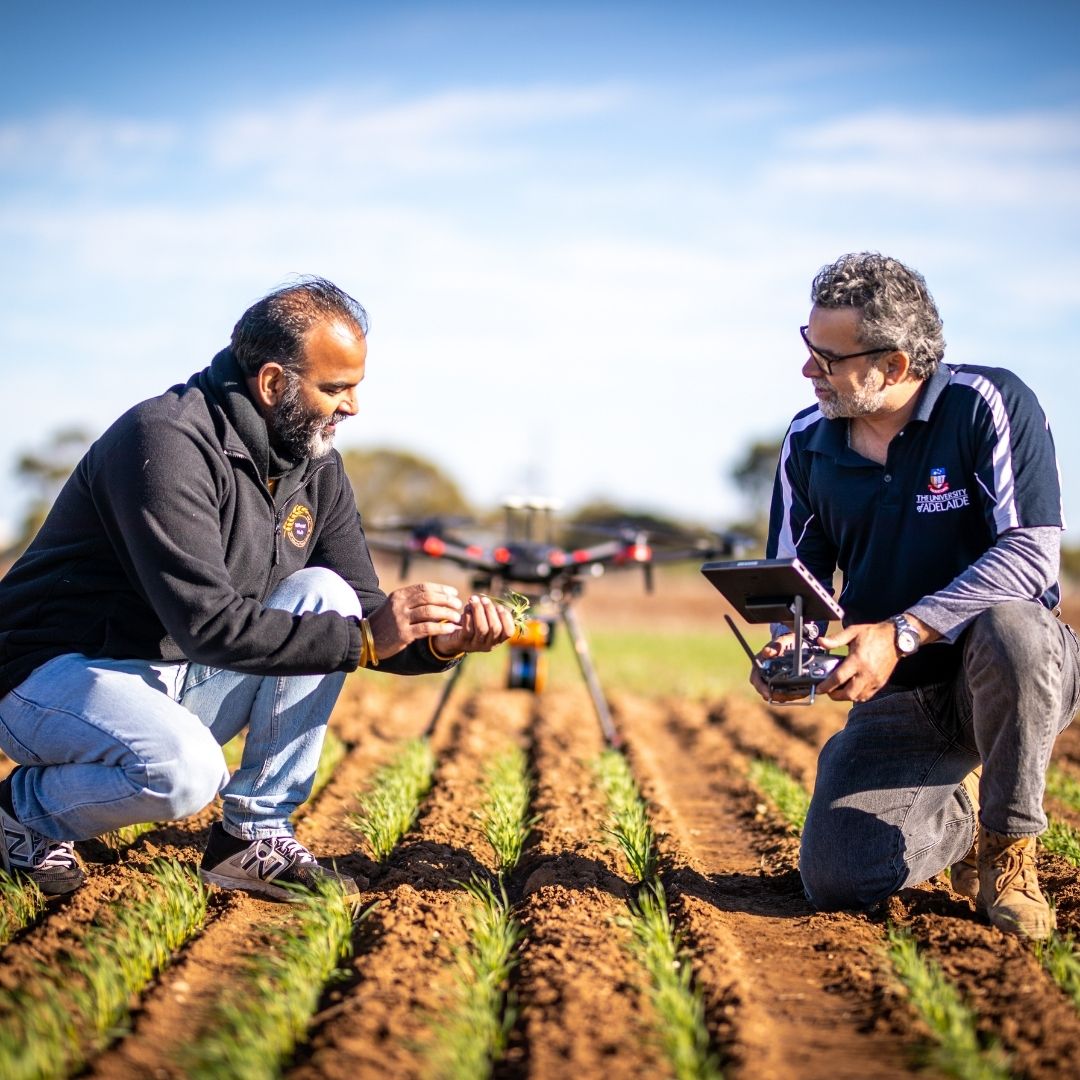
We’re building new capabilities for agriculture and global food security
SOCIALLY RESPONSIBLE GENETIC & FIELD TECHNOLOGIES FOR FUTURE CROPS
The ARC Training Centre for Future Crops Development has been established to train a new generation of researchers and leaders to build new capabilities for agriculture.
Major advances in gene-editing and synthetic biology (SynBio) over the last 5 years have the potential to dramatically improve the efficiency of agricultural production with a predicted US$1.6 trillion global economic impact.
However, greater societal engagement about potential benefits and concerns about these technologies, and improved research and industry connectivity is needed to progress agricultural innovation.
The Future Crops Training Centre will create a nationwide industrial capability that will be internationally transformational in accelerating crop genetic improvement. This capability will provide novel insights that clearly analyse societal and market considerations and new product opportunities, and achieve better alignment between technology and societal demands.
This Centre aims to develop higher-value and climate resilient crops, using new SynBio (genomic) techniques to target key traits for improving yield in our harsh local environments. We will maximise adoption of improvements and transform the industry’s growth and capability, while delivering benefits to consumers and the economy by creating better and more reliable food sources and improving prospects for rural communities.
The Centre will train the next generation of researchers in advanced genetic, phenomics, and machine learning technologies as well as the examining the socio-economic, regulatory and market drivers that that influence the research outcomes in a bid to overcome historic difficulties in translating research into impact.
By uniting key stakeholders in research, development, social engagement, responsible innovation and delivery of gains for the Australian crops industry, we will empower industry relevant R&D, informed by community need and benefit.
Research Aims:
This Centre aims to develop higher-value and climate resilient crops, using new SynBio (genomic) techniques to target key traits for improving yield in our harsh local environments.
We will maximise adoption of improvements and transform the industry’s growth and capability, while delivering benefits to consumers and the economy by creating better and more reliable food sources and improving prospects for rural communities.
Training Aims:
We will train ECRs and HDRs in new Agri-technologies and in analysing socio-economic opportunities. They will work with industry partners and communities on projects that improve the yield and nutritional value of the crops that provide much of humanity’s dietary energy and protein.
The Training Centre will integrate wet-lab research and training in advanced gene technology with the mechanisms that help translate research outcomes into the real world including training in regulatory systems, social engagement for policy impact, and the scientists’ role in policy formation.
The Training Centre will prepare researchers to work with regulators and policy-makers in planning and implementing policy, and engaging stakeholders. ECRs and HDRs will have access to the same support and resources as other ANU and UA students, as well as receiving bespoke training.
Our Centre will comprise an overarching training program and an additional 3 interconnected R&D programs that drive training and innovation in industry-focused projects. Given the time required for this extra training and professional scholarship, we will fund 3.5 years for each PhD. Both international and domestic scholarships are available.
The Programs

Program 1. Train a new generation of researchers and leaders to build capability for Australian agriculture.
We will fast-track ECR and HDR training and mentoring to build national capability and capacity for applying new genetic and analytical technologies to crop improvement. Simultaneously, we will build a community of best practice that will endure beyond the lifespan of the Centre by establishing best-practice mentoring and professional development programs.

Program 2: Training in socio-economic considerations and opportunities for innovation in alignment with community needs
Goal: To equip the next generation to make social engagement the norm, through a tailored research/training program. ECR and HDR’s will thus be empowered to fulfil the potential of new technologies they develop. Without engagement of stakeholders and end users, translation of research outcomes is rarely successful.

Program 3: Training in genetic technologies and crop genome-engineering pipelines.
Goal: To generate a national research capability in emerging genetic technologies and apply it to industry-relevant, cutting-edge projects, in order to develop future crops that are more resilient, better-quality and higher-yielding to drive long-term profitability.
Program 3a – Technological innovations in plant genome engineering. Developing and deploying new genetic technologies establishing crop genome-engineering pipelines to apply to industry-relevant, cutting-edge projects.
Program 3b – SynBio applications to improve quality traits, yield and productivity of major Australian crop species. Applying new genetic and gene editing technologies to increase yield, resilience and nutritional value of major crops

Program 4: Training and development in trait and field trial evaluation technologies.
Goal: Working with industry partners, undertake innovative trait and field evaluation of GM and non-GM plants to reduce the burden of performing GM trials.
Why do this research?
Agriculture accounted for 25% of GDP growth in 2016/17, a high rainfall year, with exports of wheat peaking at $7B. Yet even in these good years our yields are far lower than global averages, reducing our international competitiveness. Gains through ‘traditional’ breeding are plateauing and not even offsetting losses ascribed to climate change. Even cutting-edge traditional approaches, such as speed breeding and genomic selection, will be inadequate in isolation as they are restricted to available genetic diversity. For example, 89% of wheat genes contain just 3 variants across 70 years of breeding. Thus, accelerated traditional breeding alone will NOT be sufficient for the 60% rise in food production needed by 2050 for the UN’s sustainable development goals. As noted in a KPMG report, ‘A Sustainable Australian Grains Industry’ : ‘Internal industry stakeholders identified access to gene editing technology and other advancements as innovation that could unlock greater productivity in the Australian climate’. Other obstacles are an ageing population in the agriculture sector and a food industry that is cautious about new genetic technologies despite strong community support for innovation. Training a new generation to deploy critically needed innovation in a socially- and market-aware context is at the heart of our ITTC.

Unique PhDs
Get a PhD opportunity that offers you training, networking, and other benefits far beyond the standard offered at Australian universities

Study with Academics, Industry & Government
Do your PhD with a supervisor panel that includes leaders from industry, university, and government

Industry Placements
Kickstart your career with a minimum one-year placement in industry, government, and/or our international research partners
Students will have opportunities to engage with industry partners and communities on projects to improve the yield and nutritional value of the crops that underpin the energy and protein content of the human diet.

SOCIALLY RESPONSIBLE GENETIC & FIELD TECHNOLOGIES FOR FUTURE CROPS
The ARC Training Centre for Accelerated Future Crops Development is funded by the Australian Research Council under the Industrial Transformation Training Hubs Program to run from 2022 to 2027.
It is a collaboration of universities, government research agencies and the Australian grains sector’s key stakeholders in training, R&D, social engagement, responsible innovation, breeding, marketing and delivery.
It also has international partners in gene-editing, SynBio, crop breeding, and, other partnerships for co-developing deep technologies to transform the agriculture industry and global food security.
